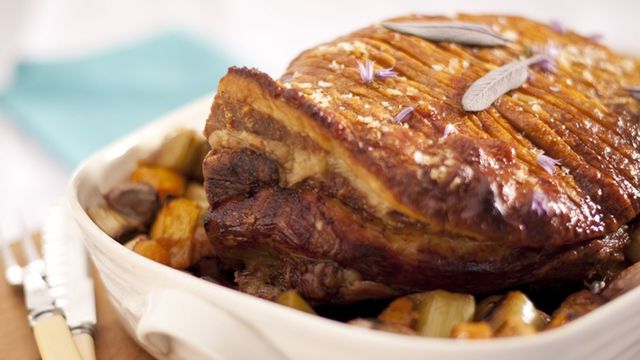
You've heard that one bad apple can spoil the bunch? The same goes for strawberries. And raspberries. Blueberries, too.
If you're shopping on Sunday for a pie you're making on Friday, then you'll want to make sure you're storing your fresh berries so that they'll last — and that means more than just picking out the moldy and . The matter of keeping delicate berries fresh in the fridge is one that continues to spark a bit of debate: Should you put those berries in the icebox unwashed, only giving them a quick rinse right before you eat them? That's one argument, and it's what many people do. Or should you wash them off as soon as you're back from the supermarket? As it turns out, even once they get home from the store.
Actually, there's a compromise position: Then dry the berries completely before storing them in a container that gets plenty of ventilation; you want to eliminate as much moisture as possible because moisture is what makes berries go bad. Here's a little more on how to do your berry best when it comes to storing strawberries, blackberries, blueberries, and raspberries. How to properly prepare berries to be stored in the fridge Before even getting to the vinegar wash, there are ways that you can promote your berries' longevity: Start by being a discerning shopper, examining each package for signs of moldy berries or juices accumulating in the bottom of the container, which can indicate fruit past its prime.
Pick out healthy fruit that looks fresh and dry. And then nip those mold spores in the bud with a solution of three parts water to one part white vinegar or apple cider vinegar — three cups to one cup will give you a good amount of solution to work with here. A salad spinner is an easy tool for dipping your berries in and out of the vinegar wash; a colander set inside a larger bowl will work too.
You don't want to soak them, but just submerge them briefly in the vinegar water and use your hand to (gently!) agitate them a bit. Then run the berries under fresh water to rinse off any lingering vinegar taste. The vinegar wash is especially good for strawberries, which harbor more pesticide residue than other berries.
It also works for blueberries and blackberries, but it's appropriate for raspberries, which are a bit too delicate. With raspberries, put them away unwashed and give them a rinse right before consuming. How to store fresh berries in the refrigerator — or the freezer Storing them in a single layer is best, but it's understandable if you don't have room; just make sure they're as dry as possible — and in a container where they can breathe.
That holey, plastic clamshell packaging that berries come in makes an excellent option — just wash it with hot, soapy water; dry it completely; and line the bottom of it with a paper towel before putting your berries back into it. Alternatively, keep the berries in a paper towel-lined plastic storage container with the lid ajar to allow air circulation, or in a . Store the berries in the middle of the fridge, away from the cooler corners, where low temps could damage them.
Prepping berries for longer-term storage in the freezer? Wash and dry as described above, then spread them in a single layer on a sheet pan. If you're freezing strawberries, remove the tops first (and then save them to use in the kitchen— ). Let the fruit freeze solid on that pan before gathering it up into a plastic zipper bag; that way it won't clump together, making it a cinch for you to reach in later and get the exact amount of fruit you need.
Recommended.














